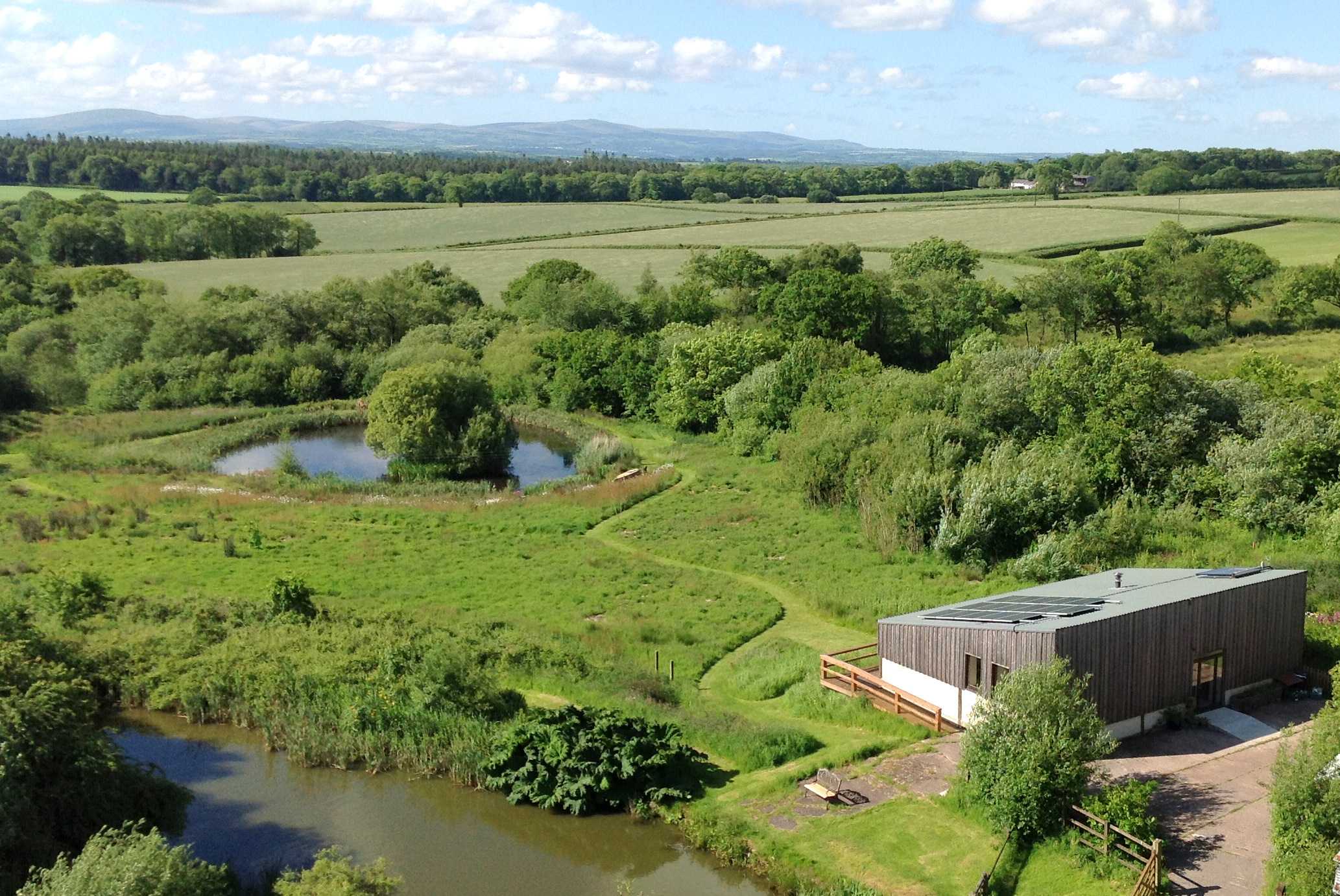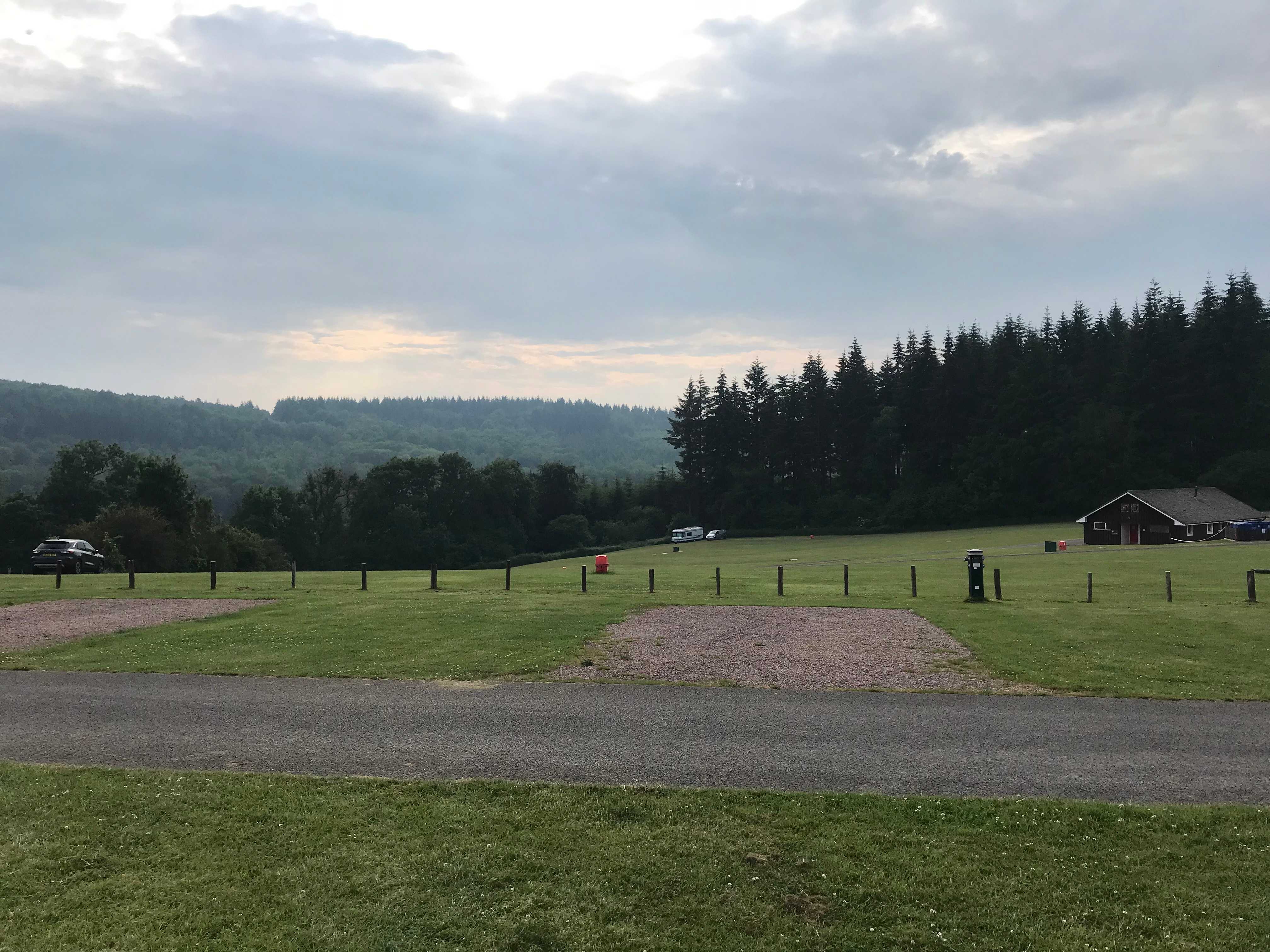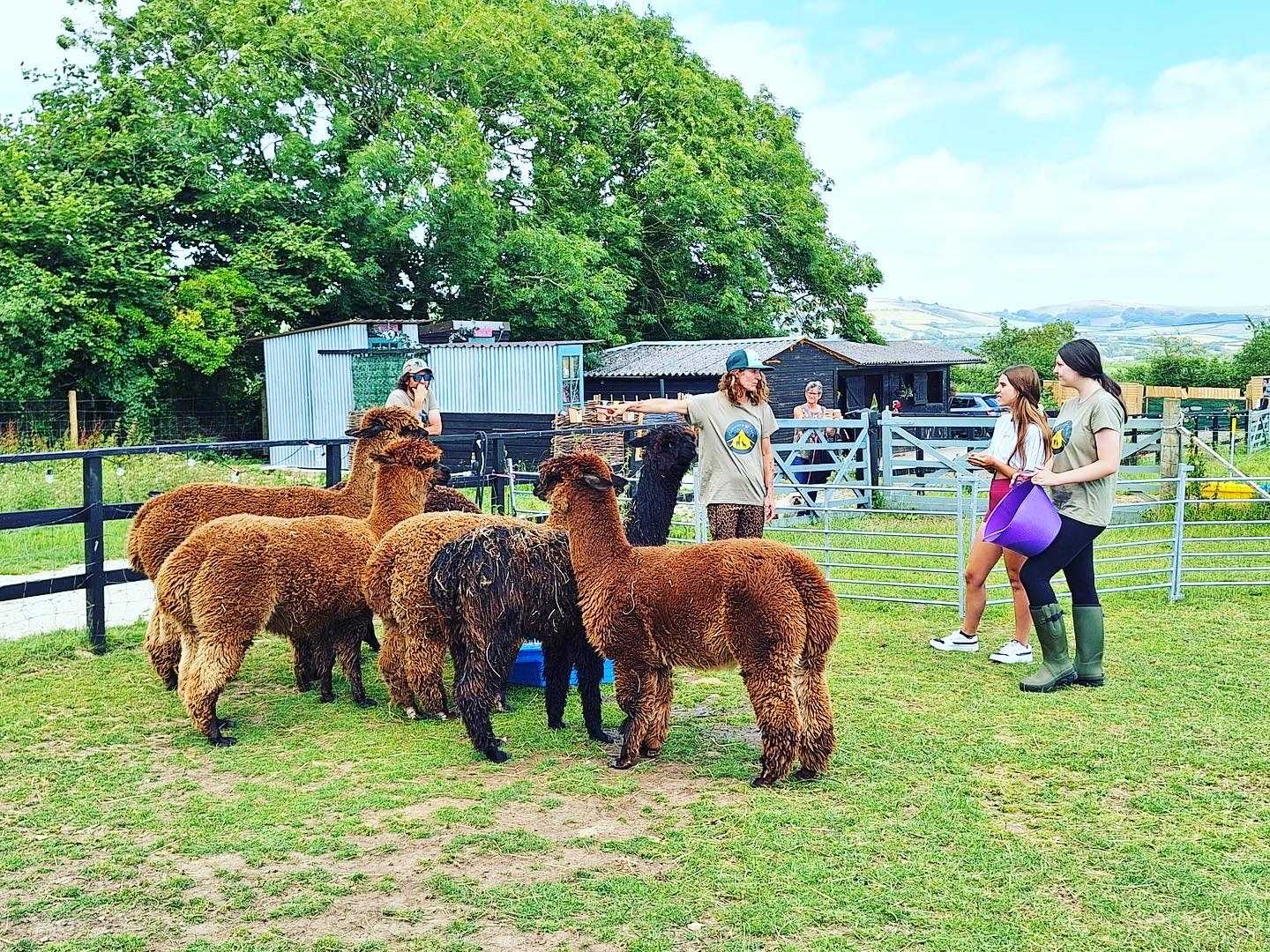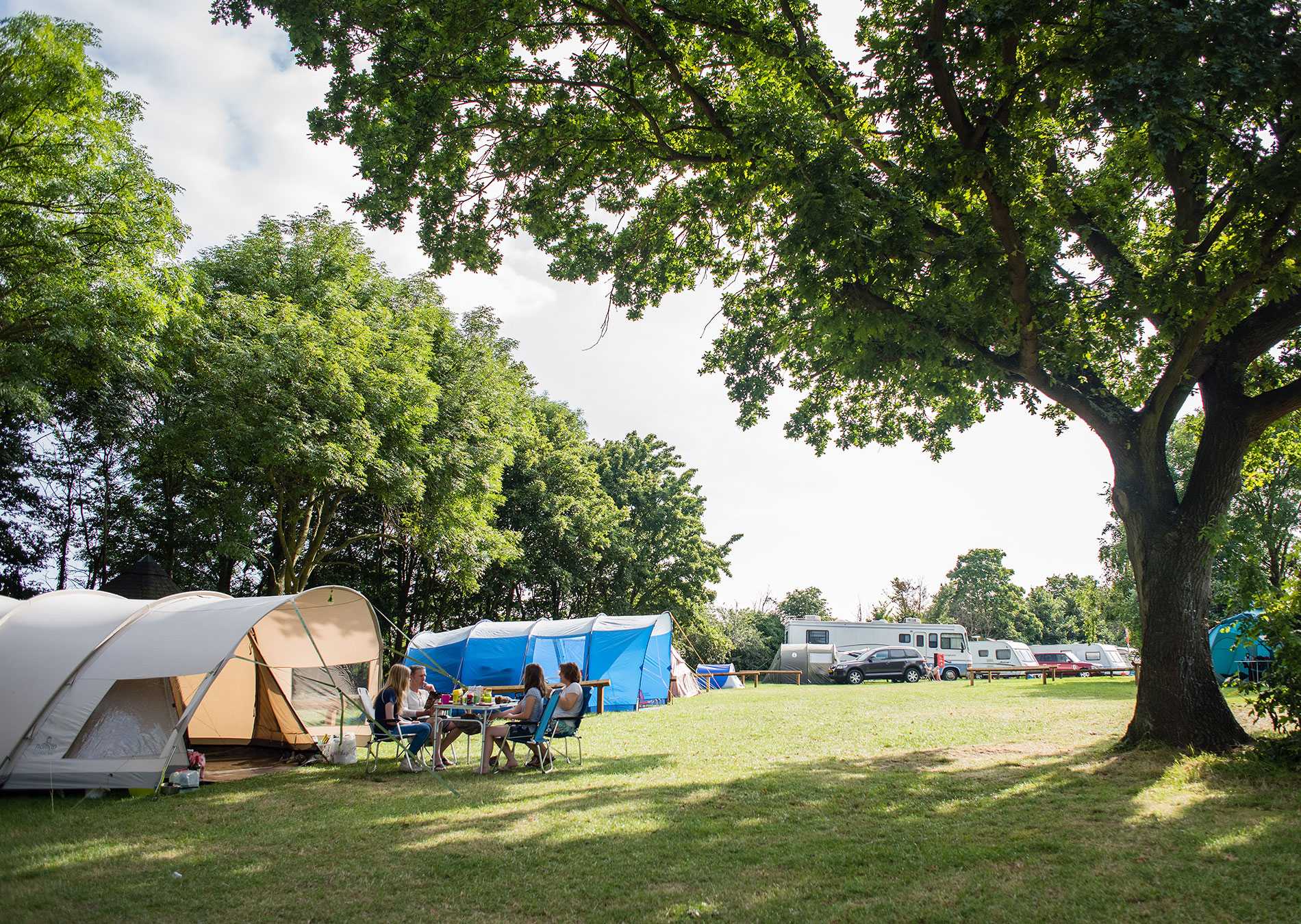The Pitchup sites leading the way in accessible holidays for disabled guests
Here at Pitchup.com we believe the outdoors is for everyone, and we’re committed to supporting as many people as possible to enjoy the benefits of an outdoor holiday.
We’ve made some changes to our site, introducting new search filters for accessible facilities, and we're working with the community of campsites, glampsites and holiday parks using Pitchup.com to help make their sites more accessible for the disability community and those with access requirements.
But we’re most proud of the site managers and owners who are leading the way in ensuring their accommodations are safe, comfortable and accessible for everyone – and they’re giving us some serious wanderlust at the same time too!
Hear from the sites in their own words below…

Ian Ripper, Wheatland Farm, Devon
Wheatland Farm is an award-winning ecosite owned and managed by Ian Ripper and Maggie Watson. The beautiful Balebarn Lodge is wheelchair accessible, including a wet room with roll-in shower and shower chair.
What motivated you to start your eco-site?
We had a desire to manage some land for wildlife and biodiversity. Maggie is an ecologist and I [Ian] have been in tourism most of my life, so we thought land with some accommodation would fit the bill.
After 17 years, our 21-acre site is a joy with fabulous diversity and a tranquil haven to explore. The five accommodation units are private and secluded, and being well away from the road and town we enjoy quiet – apart from birdsong – and beautiful dark nights with stars.
Why are accessibility and inclusivity important to you?
In our first few years we occasionally had disabled guests with minor mobility issues, but realised our four properties (at the time) were not very accessible. When we decided to build our straw-bale eco-lodge (Balebarn Lodge), we put a lot of effort into making sure it was as usable as possible to everyone. We have friends with disabilities and know from them how difficult it can be to find suitable accommodation.
What was your approach to improving the accessibility of your site? Did you engage with any individuals, specialists or community groups for advice?
A friend of mine who is a wheelchair user was really helpful in giving me design guidance and we built Balebarn Lodge to be as accessible as possible with our limited budget. Wheelchair users appreciate the single level floor in the lodge with wide doors, but also the extras like our shower wheelchair to use in the wet room
We continue to learn and try our best to improve things around the site – like bridging a muddy gap in the path around our wildlife pond so that a wheelchair can use it – even though it is hard on a site like ours. We have collected various bits of equipment to loan out as needed, too: things ranging from toilet seat raisers, walking frames and shower stools to baby carriers and baby baths so that all guests can enjoy the place.
What has your customer response been?
The response has been fantastic. So many guests came the first time because of a lack of alternative accessible accommodation, but come back because it's a lovely place and because we try our best to accommodate their needs.
What top tip would you give to others who are looking to improve the accessibility of their sites?
I think one of the main lessons we have learnt is that accessibility is a lot more than making something wheelchair friendly.
We had a guest with tunnel vision who enjoyed a guided nature walk because of the extra help we could give (a homemade walking stick and a helping hand).
I think it's the willingness to accommodate needs that makes a big difference. Put yourself in someone else's shoes and think how it feels if you can't bend low enough to plug your gadget into a low-level socket… Easy to fix!
Everyone deserves a good holiday.

Amanda Bass, Bracelands Campsite, Gloucestershire
Bracelands Campsite is on the edge of the Forest of Dean, in the Wye Valley National Landscape. Bracelands Campsite is part of the Sherwood Pines Group, which works in partnership with Forestry England to offer exceptional access to nature while protecting the local environment.
Amanda Bass is the group’s Central Operations Executive, and kindly shared her thoughts on their approach to accessibility and inclusion.
What motivated you to become a campsite manager?
The executive team at Sherwood Pines have a passion for the great outdoors and collectively we have over 60 years of experience working within the industry! When the opportunity arose to partner with Forestry England and run three campsites of our own on their behalf, it gave us the chance to stand out and commit to investing in expanding their camping offer and bring a new sense of life back to the sites.
Why are accessibility and inclusivity important to Bracelands?
We believe camping and glamping should be for all, with no exclusivity, no membership required and no boundaries. Bracelands Campsite is situated in a most picturesque forest with plenty to do everywhere you turn, and of course getting back to nature has been proven to improve our feelings of wellbeing and ease mental health challenges.
What is your approach to improving the accessibility of your site?
Bracelands has been operating as a campsite for over 50 years. A key to its longevity is making the site accessible by following guidelines and legislation, listening to our customers, and taking on board their needs. The basics are simple – access ramps, handrails, adapted changing facilities, family rooms with baby changing – but it goes beyond adaptations too. We have introduced Equality, Diversity & Inclusion Awareness training for all our team members and revised our access statement.
What has your customer response been?
The reviews we receive speak volumes. Neither are we surprised that we have many families who return regularly to get their loved ones away into natural environments – this can particularly benefit people with autism and ADHD. We started a rock painting gallery for a family that visits us with their son who has autism. Each time they visit he picks a rock from the forest to paint and the team adds it to ‘his’ gallery – it’s something we hope he can be proud of and it helps him feel like he belongs.
We also run an annual poster design competition for children with learning difficulties to design posters for the campsites. Last year it was Sherwood Young Artists, and this year we have invited an artistry school for disabled young adults to enter the competition. The winning design gets printed and displayed on site, and they win a weekend away for themselves and their family and carers.
What top tip would you give to others who are looking to improve the accessibility of their sites?
Live a day in the shoes of the customer, see this from their point of view instead of 'operationally'. Be prepared to go one step beyond, and exceed expectations. Be prepared to invest, because implementing change is neither cheap nor easy… but in this day and age it’s what we should be doing to make everyone welcome.

Claire Ives, Flowerdew Farm, Dorset
Flowerdew Farm is an eco-friendly working alpaca and goat smallholding tucked among hills in the Dorset National Landscape. We caught up with owner Claire to hear more about her fascinating career and approach to accessibility and sustainability.
What motivated you to start your campsite?
Flowerdew Farm is more than just an eco-camping and glamping site – we are also a smallholding that trains volunteers and provides experiences for guests that share our passion for farm diversification, animal welfare, ethical breeding and utilising alpaca fleece and manure for products, as well as providing creative, nature and wellness workshops.
As the owner of the site, I wanted to carry on my family's work with animals and inclusivity, mental health and wellbeing, especially catering for the needs of the more vulnerable groups. We support special educational needs and disability, female empowerment, LGBTQI and sustainability.
My grandfather was blind, and growing up I saw the discrimination he faced. My mum retrained in braille and became a leading expert at the Royal London Society for the Blind, where I later joined her volunteering as an animal and art therapy assistant. I have also worked as an environmental documentary filmmaker and producer, working with many nonprofits.
After experiencing burnout, receiving a late diagnosis for ADHD, going through perimenopause and losing my grandad to covid, it was time to bring all my loves together. I set up Flowerdew Farm as a dedication to my family and to build a fun, safe and happy place that anyone can access.
Everyone should have the right to nature and access to animals.
Why are accessibility and inclusivity important to you?
I have experienced discrimination at all stages of my life, whether it has been through my grandad’s blindness, being neurodivergent myself, or experiencing gender inequality and being part of the LGBTQI community. I understand the impact this can have, and want to give the support and extra care that is needed to those guests that need it.
Partnering with the Dorset START Mental Health team is one of our driving forces at Flowerdew Farm. Animal wellness experiences and spending time in nature are scientifically proven to reduce the stress on our nervous system and build healthy coping tools for our everyday challenges.
I want my guests to be able to take a holiday, disconnect and rest in a non-judgemental environment, with like-minded staff, volunteers and fellow guests.
We are a predominantly women-led team, and particularly love hosting solo female travellers and groups of female travellers. We love empowering others.
What was your approach to improving the accessibility of your site?
Improving accessibility at Flowerdew Farm is still work in progress, and we are by no means there yet. We are improving wheelchair access, introducing large-print guides, and making improvements for hearing- and sight-impaired guests.
What we started with was a good moral compass, and we test everything through the lens and eyes of a visitor.
Safeguarding for our guests and animals is super important, so we sought advice and guidance from the Volunteer Centre in Dorchester, the Jurassic Coast Trust, Eco reports, a private risk assessor, the Bridport Tree Planting Group and NHS Dorset Mental Health Team. We also hold a licence with Dorset Council Animal Welfare.
We also work with like-minded local collaborators such as Jo Sadler Willow, who caters for all abilities in her workshops, and teaches the power of crafting and creativity for our mental health. Jo also teaches traditional land crafts that encourage biodiversity. These workshops are available to all our guests.
We are also proud partners with Wanderlust Camping Club, who support access to nature for all, and give a portion of their fees to wildlife and nature conservation projects.
What has your customer response been? Do you have any stand-out moments you'd like to share?
Gosh, so many. Honestly it is a dream and a privilege to be able to share this journey – and it is a journey. We are still growing, and running a new business is tough! I don't really get any free time at the moment and all my energy goes into Flowerdew Farm. If I am not running my business I share my time for free help with training the volunteers, which I LOVE doing and is key to the farm and building our community.
One of the biggest compliments from our guests is that they love our volunteers and animals, and that we are approaching this with kindness, fun, education and play.
What top tip would you give to others who are looking to improve the accessibility of their sites?
-
Start as you mean to go on, be authentic and don’t worry if you can't do it all in one go! We haven’t, and we see this as a work in progress. We also accept that not everyone likes a label, and some people don’t like to mention their accessibility requirements until they arrive, or maybe not at all. That’s OK with us.
-
If you don’t know where to start, I highly recommend you seek out the support from your local businesses, community and like-minded groups and advisors for safeguarding. Throughout, stick to your passions and goals.
-
And finally, please give back where you can. Our nature, animals, humans and planet will benefit, and so will your site and business.

James Hetherington, Lee Valley Camping and Caravan Park, Greater London
Lee Valley Camping and Caravan Park, located in a peaceful spot in Greater London, is a unique site managed by Lea Valley Regional Authority. James Hetherington, Accommodation and Golf Manager, shares how they’re making accessibility a part of their day-to-day operations.
What motivated you to become a campsite manager?
I have previously been involved in all forms of leisure from professional football teams through to running hotels, country clubs and even night clubs. I manage four campsites and one golf course and I have a unique opportunity to progress and develop each one as we feel appropriate.
Why are accessibility and inclusivity important to you?
The Lee Valley Regional Authority was set up to protect open spaces and to provide access for all, from a nature reserve to Olympic legacy sites, so inclusion is a core principle in all our workings. Campsites, by their very nature, can be challenging for people with accessibility requirements but it is these challenges that drive us forward to provide better facilities.
What is your approach to improving the accessibility of your site? Did you engage with any individuals, specialists or community groups for advice?
We have a wide variety of support groups and companies that assist us with our daily operations or when planning new projects. It is with new projects that we can really make a difference as we are able to work with contractors and even manufacturers to incorporate better, more inclusive designs. When refurbishing and improving accommodation, we look to introduce amenities that make any stay a better experience – this can include improved and adjustable lighting, vibrating pillows and sloped access to support those with sensory, hearing or mobility needs.
When we started to review our accommodation, it was clear that we could improve both the stay and the amenities – and wherever we fell short, it was mirrored across all sites. In order to improve this and to provide uniformity, we appointed an Accessibility Lead from our existing staff to review all our sites and suggest meaningful improvements. We are now working towards these improvements, both retrofitting and including the changes in new-build projects where we work closely with the manufacturer.
What has your customer response been? Do you have any stand-out moments you'd like to share, or has anything surprised you?
It's early in the process but we are looking to amend our post-stay survey questionnaire to gain more customer feedback on accessibility. Where we have seen some positive feedback is in changing our landing pages – we now ask whether guests have accessibility needs and encourage guests to call us prior to their visit to discuss. This way we’re able to prepare, give guests a great experience, and make plans to assist them properly in the event of an incident.
What top tip would you give to others who are looking to improve the accessibility of their sites?
Review everything with a fresh set of eyes, and have a can-do approach.
Need help or want to discuss an idea? Get in touch at enquiries@pitchup.com